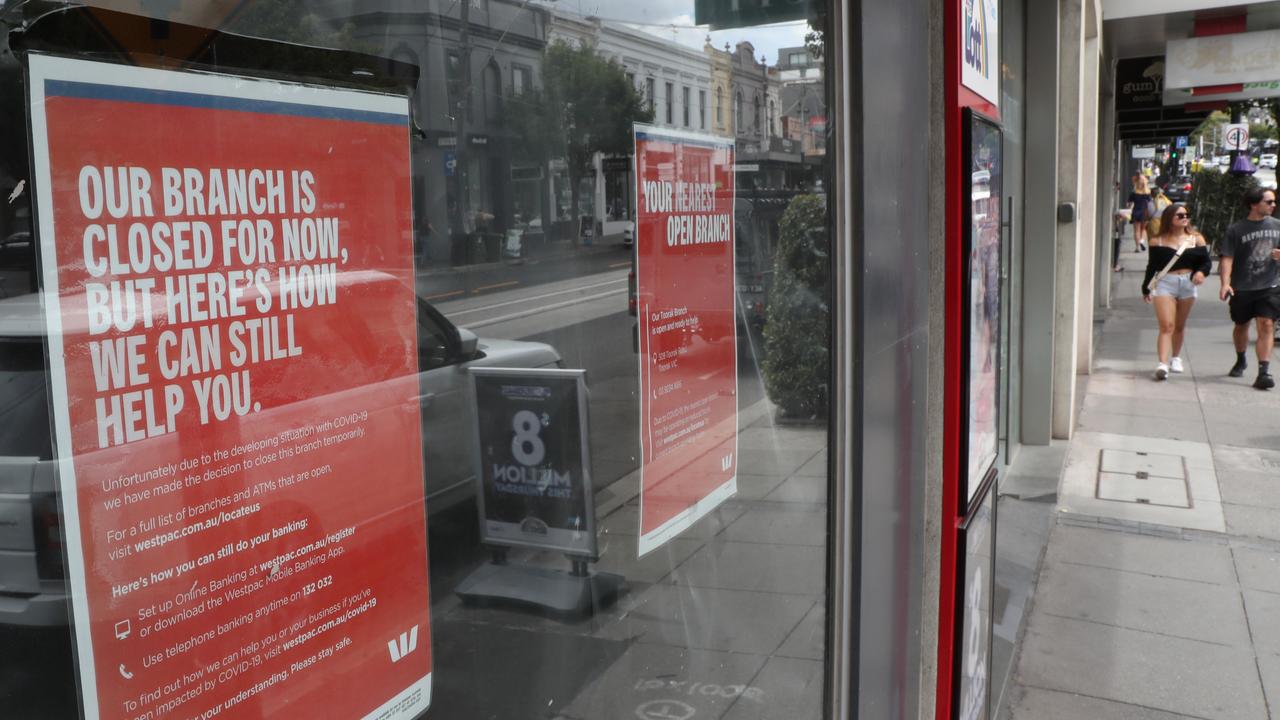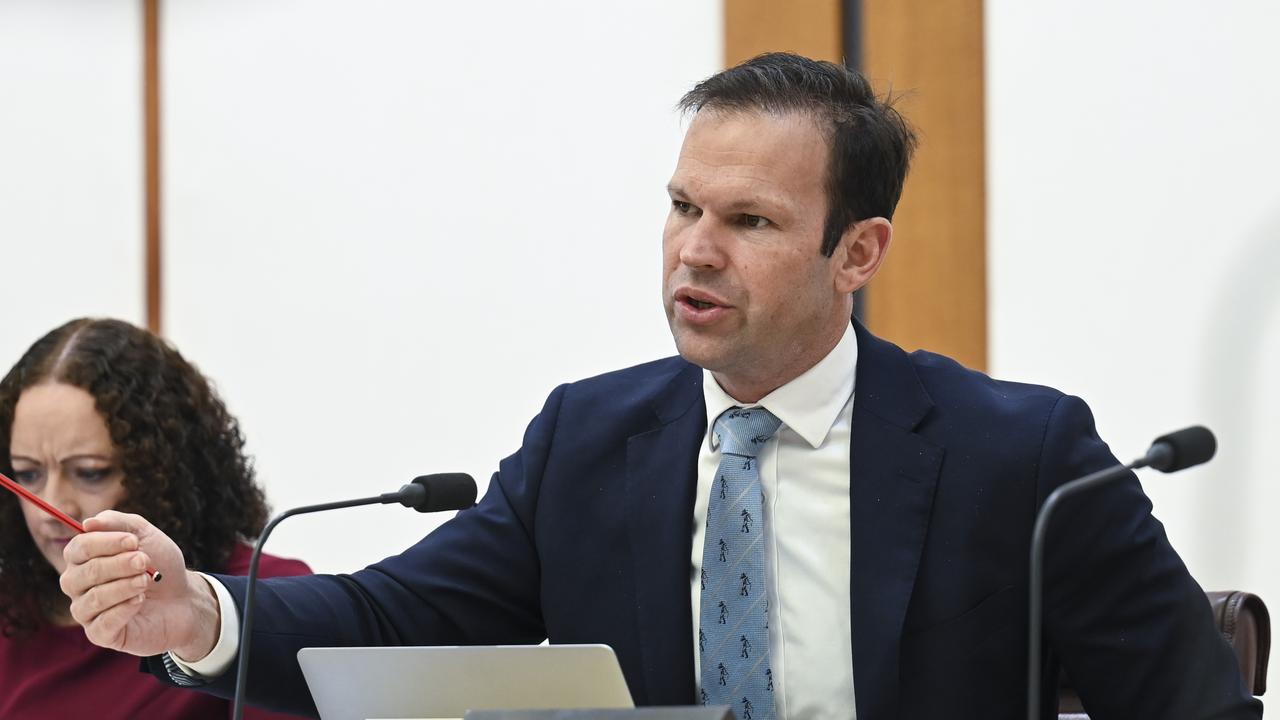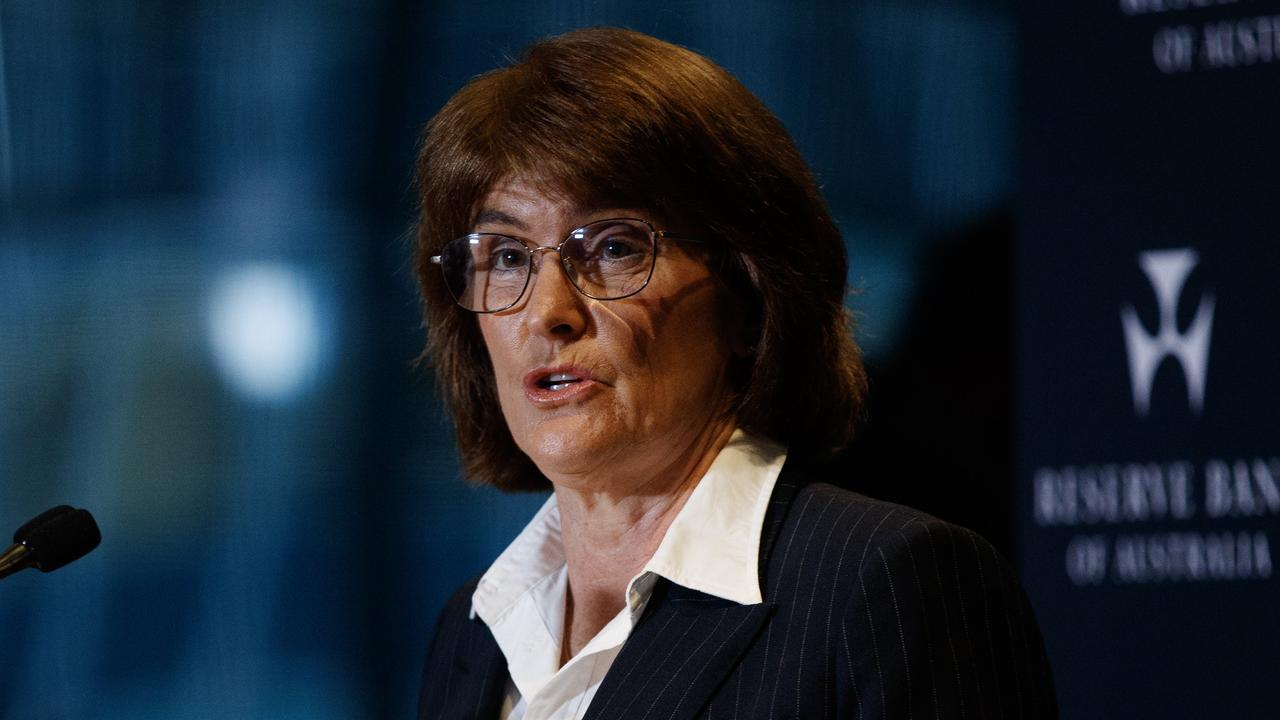Senate inquiry into regional branch closures urges sweeping changes for banks
With hundreds of bank branches closing in recent years, a parliamentary probe into the matter has delivered its final recommendations.

Business
Don't miss out on the headlines from Business. Followed categories will be added to My News.
The government is being urged to investigate setting up a publicly-owned bank to ensure regional and remote Australians have access to financial services as more and more branches close.
Handing down its final report on Friday, a Senate committee investigating the effect of branch closures on consumers and businesses recommended making the existing Banking Code of Conduct mandatory.
Under the code, bank’s would be required to undertake “meaningful” consultation with communities before shuttering a branch, and fund transition and ongoing services to ensure access to cash and essential banking services in the event of a closure.

To enforce the mandatory code, a regulator would have the authority to approve or defer any closure requests, with banks penalised if consultation or disclosure requirements were not met.
Additionally, the committee recommended that the Australian Competition and Consumer Commission be tasked with exploring the barriers that customers face when switching banks.
Government should also underwrite the establishment of community bank branches, the inquiry’s final report argued, with the cost of new fund to help set up “community branches” supplemented via an increase to the Major Banks Levy.
Bank@Post expansion mooted
The committee’s final report also recommended an expansion of the Bank@Post service, including forcing ANZ to sign on to the service.
In individual deals cumulatively worth $90m, customers at Commonwealth Bank, Westpac and NAB, alongside a number of smaller banks, can already access Australia Post’s 3500 branches for simple services such as withdrawing and depositing cash under the program.
While ANZ has not offered its services via Bank@Post since 2019, its chief executive Shayne Elliott has flagged he is open to returning after its merger with Suncorp is completed.
While the committee did not recommend that a state-owned bank should be immediately created, it did however argue that a feasibility study should scope such a proposal, possibly in association with the existing Bank@Post model.
But Australian Banking Association (ABA) chief executive Anna Bligh warned that a publicly owned bank was a treacherous proposition.
“Given the past catastrophic failures of state-owned banks in this country, Australians should be wary of suggestions of a new taxpayer funded government-owned bank,” Ms Bligh said.

“A large government-owned bank would put the ongoing viability of the many small and medium sized banks that serve customers in regional and rural Australia at serious risk.”
The spectacular implosion of state-run banks in Victoria and South Australia in the early 1990s were among the biggest economic disasters in Australia’s recent history and ultimately led to the defeat of two state Labor governments.
Committee chair, Queensland Nationals senator Matt Canavan, accused the major banks of failing to act in good faith over the closure of branches in regional towns. “There now needs to be a stricter and more proactive approach to rebuild financial services in the bush,” Mr Canvan said.
“The major banks have been the principal reason why there is a financial desert in so many country towns and so it is perfectly reasonable for them to pay a small fee to help rebuild financial services in the bush.”
The inquiry conducted hearings across a host of regional centres including Cloncurry, Tom Price and Launceston, with witnesses reporting that bank branches were an essential service in many communities, particularly for the elderly, and those without internet access or poor financial literacy.
Businesses with high levels of cash transactions in regional and remote areas also reported they were regularly required to travel long distances to make deposits as they did not have secure premises to hold significant cash reserves.

According to data released by S&P Global Market Intelligence, Westpac closed 167 branches last year. Commonwealth Bank shut 73, ANZ closed 72, while NAB shuttered 72. These figures cover city, regional and rural areas.
Data released by the ABA shows consumers have overwhelmingly shifted towards online banking in recent years, with 98.9 per cent of transactions now made via the internet or banking apps.
A further 0.7 per cent of transactions are made in a bricks and mortar branches, while the remaining 0.4 per cent are conducted through phone and chatbox functions.
Similarly, the surge in the share of digital wallet transactions, and the corresponding decline of cash usage has also diminished branch usage, with just 12 per cent of consumers reporting that they make weekly visits to their local bank.
CBA and Westpac have extended their moratoriums on branch closures through to December 2026, and January 2027, respectively. ANZ has committed to pause closures until the culmination of the probe, while NAB has continued to shut regional locations.
Originally published as Senate inquiry into regional branch closures urges sweeping changes for banks






